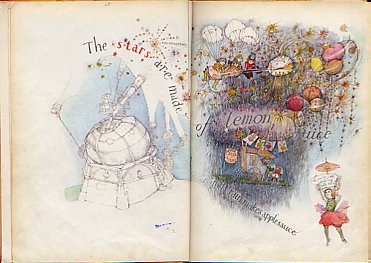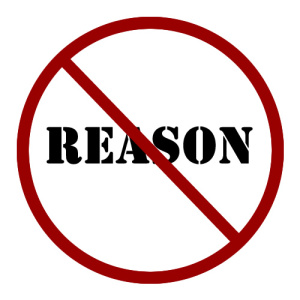Talkin One-And-Twenty

Sorry about the delays. Frank had the plagues. The assumption is that it was COVID-19, because what else could it be?
I'm 90% sure that 85% of this lexicon was already defined in-text and we don't really need it here. But, y'know, I guess that's good to have.
Isn't the book over? We did the last chapter.
Ah, but not quite yet. The book has two pages of future lingo that it thinks you should know. Some of these are just regular words that Hume thinks you might not know.
This is weird for a bunch of reasons. Like first of all, that's just an actual word and that's its normal meaning. And secondly, I would expect that word's meaning to have changed substantially in the Cyberworld future where the Provisional Government has conquered Mexico.coyote: Someone who smuggles illegal transients from Mexico to the U.S.
To be fair, this was long before the Urban Dictionary was a thing, and the normal audience of this book were pasty-ass white people from the suburbs. So...there is the entire real possibility that Hume was correct.
Making made up words sound plausible is actually really hard. You can't just write down noises and have it come out right. Language sounds different to random sounds. People speaking in a language you don't understand still sounds like speaking. There's a whole study of linguistics and it's not easy. We forget at times that Tolkien actually was a linguist, and he spent years working on his Elvish and Dwarvish cants.
Now this goes a little bit beyond “this shit is hard” because some of this shit is not pronounceable. My wife speaks a Slavic language and I have to say that I am not entirely sure how they intended “smyertniki” to be pronounced. It's a deliberate corruption of an Anglicization of a Russian word that means something kind of similar. It's simply missing a number of crucial details that would allow me to pronounce it correctly and I can speak Slavic words. Show this to the presumable American target audience and it might as well be redacted with big black bars.
Beyond the fact that people obviously weren't going to use these terms, they can't use some of these terms. This isn't fleshed out enough for that to be an option.
Wrap Up

Okay, so reading GURPS CyberWorld makes me re-evaluate some of the problems I had with GURPS CthulhuPunk. G:CP still has a shit ton of problems, but it turns out that some of those problems are inherited and baked-in rather than a fault of McCubbins just not using the material correctly.
Honestly, I'm not sure what the pitch meeting for this book was like. GURPS Cyberpunk is absolutely insufficient for realizing a cyberpunk setting in GURPS. They obviously wanted Cyberworld to be to Cyberpunk what GURPS Fantasy is to GURPS Magic. They went out and bought somebody that can literally write a cyberpunk setting in their sleep. But...it isn't really a GURPS setting? It's a generic cyberpunkish setting which has been grafted onto fairly terrible GURPS hacking mechanics.
What made GURPS Fantasy work is that it was, like Earthdawn, sort of recompiling Dungeons & Dragons as a setting, trying to provide a basis for the tropes of the setting. GURPS Cyberworld doesn't do that, but that's absolutely what it needed to do.
We were perhaps too harsh on GURPS: Cthulhupunk, just as we are perhaps too harsh on GURPS: Cyberworld. Each book is dependent on the previous book in the trilogy and the foundations are not solid. GURPS: Cyberpunk didn't do the job it needed to do in setting up a cyberpunk world, or lay the foundations of a playable game. GURPS: Cyberworld didn't create a world structure or story structure that GURPS Cthulhupunk could build off of. The dominoes had been set, the die had been cast. The Rubicon had been crossed. Bottom text.

Bottom text!
GURPS has structural problems being made into a Cyberpunk or any modern or near-future setting. The core mechanics of the game are fundamentally a Dungeons & Dragons hack. And that kind of simulationism just isn't a great fit when people have cars and phones – as we see with the total failstate that is d20 Modern. Any system that gets excessively concerned about the strength differences between two swordsmen is going to choke on a dick when it comes to representing the “strength” of a back hoe or a dump truck.

But we don't normally get that worked up about the GURPS rules being bad. This is a game roughly contemporaneous with 2nd edition AD&D, no one expects the rules to be good. GURPS books are usually praised for discussions and thoughts about the subject matter. GURPS Asparagus has problems as a game, but it's an excellent sourcebook for table vegetables in whatever system you happen to be using. The GURPS Cyberpunk / Cyberworld / Cthulhupunk progression doesn't really feel like that at all.
Instead we get a very perfunctory explanation of Cyberpunk as a genre and the Cyberworld setting in particular. You're pretty much supposed to know what a megacorp is and why a group of shadowy characters with diverse skill sets might be paid by one in order to engage in covert operations against another. The books don't concern themselves with how futuristic casinos work, it just gets into the fine points of how much damage bullets do and how much batteries weigh. The fact that all of that is close to worthless when it comes to actually plotting out near future Ocean's Eleven style heists seems to have somehow missed everyone involved in all of these books.
On top of that, the book is so Numbers Filed Off Shadowrun it's kind of painful. Not because Shadowrun is bad as a cyberpunk setting, particularly, but because there was a lot more opportunity to really lean into that. I mean, there are no Native American Nations or Aztlan, but Zurich-Orbital is still there and there was a great plague and what the fuck was up with Australia anyway?
That might be an unfair criticism. The world may not be ready for a postmodern Cyberpunk setting which deals with how a lot of the cyberpunk shit either didn't happen or didn't happen the way we thought it would, and how that affects creating and running a game. But at some point someone in GURPS should have sat back and said "But Why do you play a netrunner?" And quite obviously nobody did. It's a cyberpunk game, of course someone plays a goddamned netrunner.
But why.
Cooperative stories require something of a frame of reference. For stories set in the present day, that is often taken care of for you. In fantasy worlds based on Middle Earth, the frame of reference is inherently simple: there are elves and orcs, and most of the land is wilderness. When the characters go to a place, it's like Sinbad or Odysseus going to a place. The world has very little going on in it, and there's very little for the players to need to know.

The pointy end goes in the other man.
Getting away with murder in Ancient Greece or the generic fantasy world of your choice is easy – you leave town. Getting away with murder in the present is much more difficult because there are like laws and phones and DNA evidence and shit; but at least you pretty much know how it works or at least you can watch some true crime shows and figure it out.
But how do you get away with murder in the future? Are there networks of cameras everywhere that have AIs attached to databases of faces? Are there identifying microchips in bullets and charges? Do satellites monitor the movements of all human shaped objects above ground? Is the state able to track you by the EM signature of the computer in your head? I don't know! It depends on what kind of horrible future you have going.
Getting away with crime in the future might be seriously involved. The interactions between futuristic counter measures and counter counter measures is pretty much the entire story for science fiction works like GATACA and The Demolished Man. And those are good and you should watch/read them respectively. On the other hand, Big Brother in the future may be fragmented and comatose, and getting away with crime in the future might be as simple as leaving town like you were in Snow Crash or Battle Angel. Even simple details like “how does your job know you are you?” have been the basis of entire Cyberpunk works (the aforementioned GATACA and also Paradise Hills, for example).
Which is a bit of a long walk to get to the fundamental point: the foundations of performing Ocean's Eleven style hijinks is quite a bit of discussion about what Team Law Enforcement is actually capable of. The whole GURPS idea of “the setting could be anything!” is just intrinsically unhelpful.
On the other side of things, the general acceptance is that if you get arrested, the game is basically over. In the real world, this is not actually the case. Real criminals with any amount of wealth have lawyers and while legal troubles don't go away for a lot of people, going to jail is a temporary setback rather than a "game over man."
But that is a very complicated approach which a lot of Cyberpunk games do not engage with, because to many players it is much more fun to crammed full of highly illegal implants and have shoot-outs with the cops rather than be taken alive.
Anyway, we're getting a little far afield from the book itself. How Bad Is GURPS Cyberworld?
It's not flavourless. But I can kind of see why GURPS Time Travel went with Shikaku-mon as their default Cyberpunk setting. The GURPS approach to Cyberpunk (including the incredibly inane "Cyberprep" subversion) just doesn't double-down on the nuance of the setting. Cyberpunk, like the Gothic Punk World of Darkness, sort of lives and dies on the native aesthetic. GURPS is just a little too lukewarm tofu. Or maybe one of those puffed rice coasters.
I want to tell Cyberpunk stories in a cooperative storytelling milieu. And I want to add Lovecraftian magic to those Cyberpunk stories. Really. I genuinely want that. I don't think a single part of the GURPS Cyberpunk / GURPS Cyberworld / GURPS Cthulhupunk is helpful towards letting me do that. There are definitely some good ideas mixed in here and some of the prose is an entertaining read, but there just isn't enough there. For anything.
There isn't a single part of any of these books where it's fleshed out enough that I could say “Like GURPS Cyberpunk except...”
If you pointed a gun at my head, I could probably try to run a netrunning session with the GURPS Cyberpunk rules, with or without the Cyberworld additions. But I don't want to.
I feel like a lot of the inherent GURPS instincts worked against themselves here. We didn't need a massive top-down overview of Cyberworld. We need a Sprawl. We needed a focus on some specific megalithic dystopian cityscape that there was no escape from. Where some people are born into corporate servitude and others are born into poverty and gang violence and that those two worlds exist side-by-side. There need to be cracks in the world and people that move in stray demi-mondes of legality and plausible deniability.
And there has to be a motivation. That can be as simple as money. Money buys things in Cyberpunk settings that you want. Money saves little sisters that need that new heart, or keeps you alive for another century, or buys you that shiny new cyberarm. Money doesn't generally improve the world, but it can improve your life, and that is true in a way that quasi-medieval fantasy RPGs generally don't approach. It isn't about defeating the Big Bad, it's about Getting Paid.
And that's okay.
The future changes even more rapidly than the present. We've caught up to Cyberpunk 2013 and Cyberpunk 2020, but already Shadowrun's 2050 looks dated and ridiculous. Any Cyberpunk game written in 1993 would need to be rebooted to be taken seriously today. Cyberpunk 2013 is being rebooted as Cyberpunk 2077 and it actually looks pretty cool. The fact that GURPS Cyberworld doesn't hold up isn't particularly interesting. That doesn't separate it from its peers. The issue here is that I don't think anyone cares about rebooting this franchise. There wasn't enough brick and mortar to rebuild from.
In 2020, Australia is on fire. We are not prepared to abandon Australia. If we did depopulate Australia, it would not remain so for long. Humans are stubborn and adaptable.
What would GURPS Cyberworld 2099 look like? I don't know. The normal people you'd get to write it are off doing Eclipse Phase. Which says a lot: EP may have a lot of flaws in the setting timeline, but the basic idea of "let's really embrace posthumanism" had a lot of appeal to it. Neuromancer is still the definitive cyberpunk novel, but today any good updated setting would include material from Altered Carbon and Deus Ex. The world needs to be a lot slicker and weirder and you need goddamn smartphones or a good explanation for why that didn't happen.
Hume was a reasonable choice to be one of the people writing this book. He writes acceptable Cyberpunk prose and he turned in his writing assignments on time. He was not in any way a sufficient writing team for a book like this.
First off, Hume obviously never wrote a ruleset that was good or even acceptable. This is the guy who invented Open Tests for Shadowrun for fuck's sake. But secondly, this is a guy who writes entertaining snippets of futurism and in media res future dystopian fiction. This is not a person who has any particular chops as a genre deconstructioneer and appeared to have no interest in doing so for this product.
Getting someone like Hume on board to just write disjointed mood pieces about ProGov checkpoints and the Department of Bread and Circuses is probably necessary. But GURPS really needed someone who was interested in really tearing this genre apart and putting it back together. In no part of this trilogy did they get that. There isn't even a discussion of what a Nash Equilibrium might be if the GM changed the parameters of how law enforcement worked and how the player characters might respond.

If the new world order has facial recognition programs attached to street signs, the player characters may have to conduct all missions in clown makeup or masks of dead presidents. If the new world order tracks people through their phones, the beginning of every mission has all phones getting put into bags of chips.
I suspect McCubbin massaged all of the numbers that Hume provided, and McCubbin did the general work on Cyberworld and GURPS Vampire: The Masquerade. McCubbin is an okay mechanic, but even he didn't have a lot to fucking work with. GURPS needed to tear down its netrunning rules and rebuild them, and that's not how they work.
GURPS wasn't going to be the go-to game system for Cyberpunk roleplaying, and presumably Paul Hume knew that going into this project. It would definitely explain the “phoned in” feel of a lot of this material. But Cyberworld could have easily been a go-to setting for Cyberpunk roleplaying. We could have been saying “I want to run a Shadowrun game, but with no magic so we'll be playing in Cyberworld” or whatever.
And that's precisely why the whole attitude of painting by numbers and phoning it in on the setting portions was just totally unacceptable for this product. Someone went through this and dutifully filled in all the page numbers for devices cited in other books, but that shit doesn't matter. The part that mattered was selling me on the idea that I wanted to tell stories in specifically Cyberworld rather than try to recompile Snowcrash, Ghost in the Shell, or the Sprawl Trilogy (all of which had come out in print form by 1993 – the movies of Ghost in the Shell and Johnny Mnemonic didn't come out until 1995).
And to expand on this, there's a lot of cyberpunk stories which you can't tell in Cyberpunk 20XX or Shadowrun. The technological and setting conceits just aren't there. So there's absolutely room for a cyberpunk setting that appeals to very different preconceptions of how megacorporations work or what tech is available. Mafia Inc. isn't a bad idea, it's just not an idea that is actively implemented in Shadowrun.
Speaking of Ghost in the Shell there is a reason that the live action version with Scarlett Johansson is so unsatisfying, and it isn't the totally bizarre choice to have The Major played by a white woman. I mean, that was weird, but the reason that film is unsatisfying is that it does not resolve its central moral issue. That is, while various of the Puppet Master's victims are shown to be bad people that are in some sense deserving of punishment, a bunch of the other people killed and memory wiped are still explicitly random innocent people. That means that the fact that Kuze goes to the end of the movie without actually being punished or even still hunted for all his multiple murders makes the story unsatisfactory. While it's possible to tell a story where evil wins because good is dumb, you need to make your story -or at least the resolution of your story be about that. You can't just leave evil unpunished and have the ending credits happen, it leaves your story unfinished. You need a “Forget it Jake” or at least a “To be continued...” to put a bow on it.
Meanwhile, in the real world the United Kingdom left the European Union for no reason at all and Honduras and El Salvador went to war in 1969 because of bad fan behavior after a fucking soccer game. In the real world, shit just happens and a lot of it doesn't make sense at the time or even in retrospect. The real world doesn't owe you a fucking explanation for anything.

But Cyberworld is fiction, not reality. When it kills everyone in Australia, that demands a narrative payoff. It doesn't need to have a happy ending, but it needs to go somewhere. If all those deaths don't establish something, then the audience's time is being wasted. That's me. My time was wasted.
I suppose we should mention sequels. Because GURPS didn't do much with GURPS CthulhuPunk, but CyberWorld still showed up every now and again in the reference material until...fucking GURPS 4th edition came out in 2004. So this was the default GURPS Cyberpunk setting for a decade. You don't remember that shit unless you had a subscription to Pyramid or something, but it was there.
And that's the book.